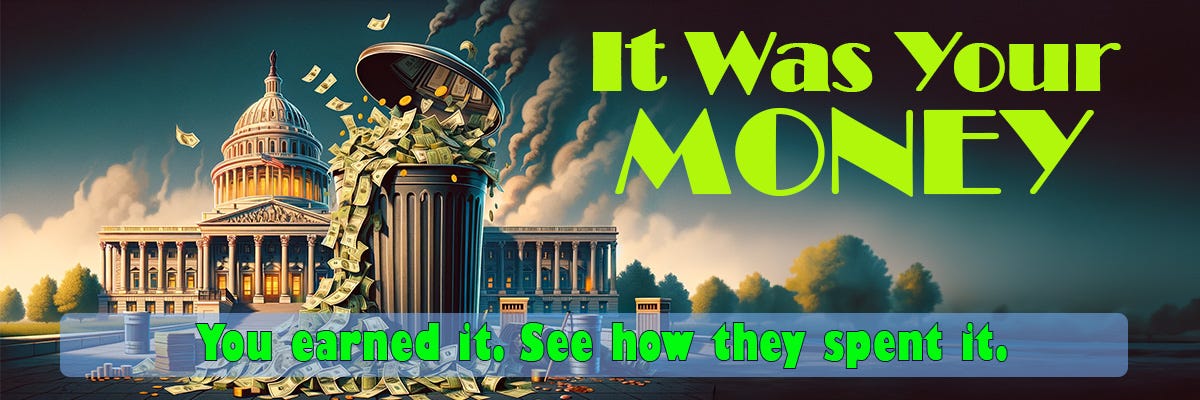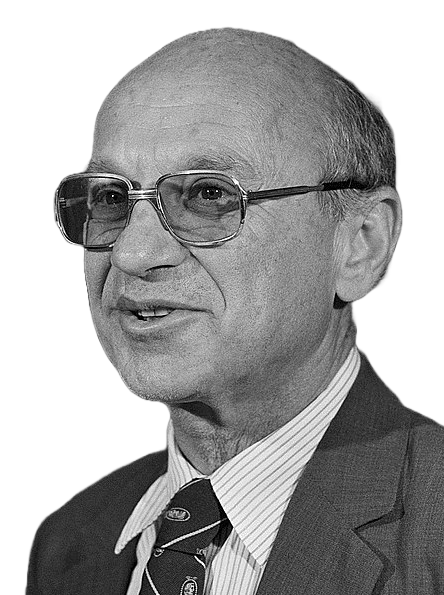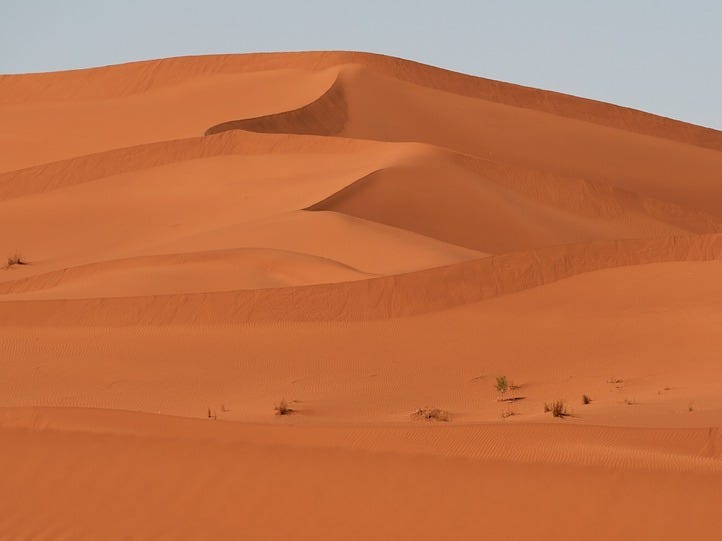Click on the player above to watch the video or read the transcript below.
I’m beginning what I hope will become a regular feature of this newsletter:
”It Was Your Money.”
In future posts on this topic, I’ll highlight some of the ways our government has been spending taxpayer dollars and running programs “for our good.” With our national debt exceeding $35 trillion, our future and the future for our children and grandchildren looks uncertain.
And yet, our leaders keep pushing to spend more, putting us further into debt and threatening the stability of our country. And they run so many programs that just don’t work.
As much as we might want to blame politicians, we should remember we elect those politicians. In a way, we all share the responsibility for what they have done with the power we’ve entrusted to them.
“It Was Your Money” will examine government spending on projects that may be inefficient or wasteful. It’s essential for us to understand how our resources are being used because over time, we’ve allowed the government to take more control over our daily lives.
Is this level of control something we should continue to allow?
Or do we, the people, need to reclaim responsibility for the use of the resources we earn and the control of our own lives?
Milton Friedman on Government Control
To start this journey, I’d like you to meet an economist who made a huge impact in this area: Milton Friedman.
Friedman, a Nobel Prize-winning economist, was a vocal advocate for free markets and minimal government interference. His ideas challenged the prevailing economic policies of his time, arguing that free-market systems—rather than government-controlled systems—drive growth and innovation.
One of his quotes that resonates deeply with this topic is:
“If you put the federal government in charge of the Sahara Desert, in five years there'd be a shortage of sand.”
Milton Friedman
This humorous remark captures a core part of Friedman’s philosophy: government intervention often leads to inefficiencies and shortages rather than solutions.
Friedman's quote suggests that a government agency might mismanage even the most abundant resources if left unchecked. Bureaucratic red tape, inefficiencies, and lack of market incentives can quickly turn a natural abundance into a scarcity, illustrating the potential pitfalls of centralized control.
Friedman’s critiques extended beyond just humorous quips. In books like “Capitalism and Freedom” and “Free to Choose,” he argued that personal freedom and economic liberty are essential for a thriving economy. According to him, when individuals are empowered to make their own choices, both people and economies flourish.
Examples and Warnings
In researching this topic, I found no shortage of examples where government mismanagement led to wasted resources. That’s what I’ll focus on in future posts in this series.
As President Ronald Reagan famously said in 1986:
“The nine most terrifying worlds in the English language are: ‘I’m from the government, and I’m here to help.’”
At the rate we’re going, our government’s unchecked spending and desire for control may bring about dramatic changes to our lives. We need to hold government officials accountable for the choices they make with our money and stop supporting those who only promise to spend more.
Yet, it’s also essential for each of us to look inward. We have a role to play in being responsible stewards of our own finances and living with integrity. God calls us to be a light in this world and to actively do good.
“… let your light shine before others, so that they may see your good works and give glory to you Father who is in heaven.”
Matthew 5:16 (ESV)
Part of this calling includes being thoughtful with the resources we’ve been given, both on a personal level and as a society. We can influence change by staying informed and making wiser choices at the ballot box and in our lives.
Join the Conversation
I encourage you to read or listen to the future posts of “It Was Your Money” as I share more examples and insights into how our government spends the money we earn and how they run the programs they have decided we need.
Please share your thoughts—what government spending issues concern you? How has government overspending affected you personally?
Together, let’s stay informed and consider how we can each make a difference.















Share this post